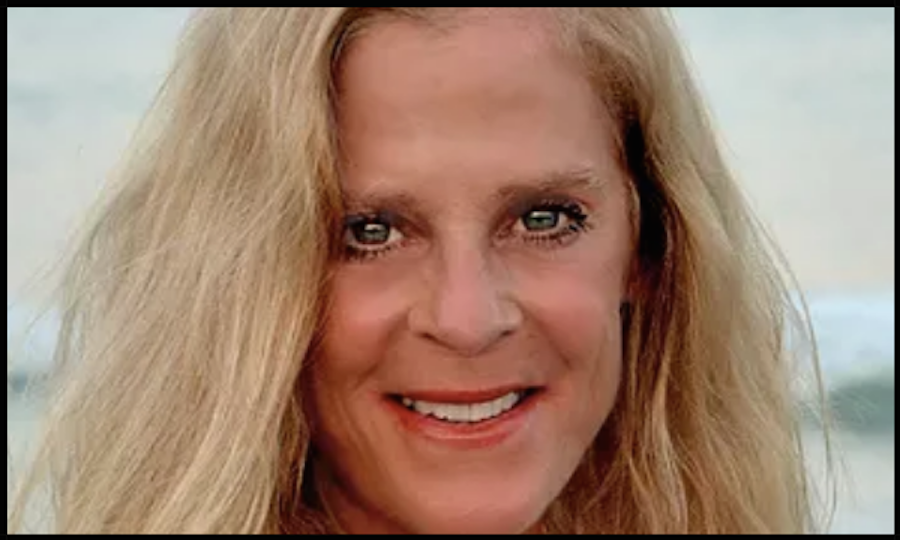Spiritual Gifts From My Brother Who Suffered From a Mental Illness

In my case, my brother’s special gifts helped heal the wounds of our family’s traumas with his extraordinary gifts. My father, a World War II veteran, suffered from PTSD decades before there was such a label. Not long after she married him, my mother’s schizophrenia became so acute she had to be institutionalized multiple times. When she wasn’t locked up and enduring electroshock treatments, her self-medication was alcohol. My father’s way of coping with their loss of intimacy was to abuse her, my two brothers, and me emotionally. And, when I was a pre-teen, he abused me sexually. When my mother died by suicide, my college-age brother Call ran away from home—so he wouldn’t have to admit that he, too, was hearing voices. Call lived the life of a homeless drifter for the next 20 years—until he miraculously returned to us. I became his primary caregiver as we pursued treatment plans for his schizophrenia. Oh, and while Call was on the road, my father, overcome with grief for the pain he’d caused, also died by suicide.
My rediscovered relationship with Call lasted for 12 more years before he died, not of mental illness, but of colon cancer. The life lesson I took from this time is this:
Because of his extraordinary sensitivity and personal gifts that I can only describe as spiritual, my mentally ill brother Call was much more my mentor than I was his supporter in therapy. In the healing process that followed my reconnecting with him, he became the focal point of my transformation.
Call could walk into a room where, moments before, there had been a stressful situation—and the emotional climate would suddenly grow calm. His presence affected strangers and loved ones alike—but especially me. I was the closest to him, and we share a powerful, unspoken bond. Sometimes, I’d be rushing to his door—I’d be anxious from driving through traffic and often strung-out from dealing with difficulties in my own home—and he’d greet me with his characteristic cackle! He’d give me a huge grin and ask, “How’s your patience, Becky?” I had to laugh! He’d called me on my stuff!
Over the years, Call and I had long, candid talks. When his cocktail of psychoactive drugs was dosed effectively, we had rare opportunities to discuss events that had hurt us deeply and misshaped our development. The main thing he taught me is forgiveness, which is not a simple decision but the ongoing personal development of discovery and healing. From his early childhood to the day he died, Call loved every member of our family unconditionally. And through the worst of it, he understood our demons and our challenges. He acted from compassion because he had demons of his own. But he was never led by them, never submitted to them.
While my father was alive, my husband Jim and I never suspected he’d abused our daughter Kim sexually. We only found out when, as a young woman, Kim shared her experiences with her therapist. We’d already added one more addiction to our list of family woes—Kim’s struggle with anorexia. Call’s wisdom helped us through those excruciating experiences. And, believe it or not, we found a path to forgiveness through that dark thicket, as well.
I’ve come to believe all of life’s challenges are lessons to be learned. I can’t judge other people who may show weakness or lack of will in the face of challenging situations. I know that only compassion and love can provide any hope of healing.
My relationship with Call was a marriage of souls. You might say it was karmic. If you think about your life as a series of lessons to be learned, you begin to appreciate that—impossible as it might seem at the time—every experience, every relationship, every twist and every turn of fate, is a gift.
My indomitable spirit requires me to shirk the role of victim and step up to all of life’s challenges. Beyond my own cares and woes, I have an obligation to help others wherever I see a need. Call’s legacy lives on in my work as a mental healthcare advocate.
One urgent need is to change both awareness and public policy toward treatment and care of people who are labeled “mentally ill.” Our collective ignorance of mental-health challenges is appalling.
With all my energies, I will meet this challenge head-on. I love life, and I celebrate its gifts!
Rebecca Schaper is an author, filmmaker, philanthropist and mental health advocate. Her debut non-fiction title, The Light in His Soul: Lessons from My Brother’s Schizophrenia, was recently published. It is based on the award-winning documentary A Sister’s Call which Schaper co-directed with Kyle Tekiela, and executive produced. Both projects chronicle her mission to bring her brother Call Richmond, Jr. back from the depths of homelessness and schizophrenia. Schaper is active with the National Alliance of Mental Illness (NAMI) at both the state (South Carolina and Southern Regions) and national levels. www.rebeccaschaper.com
This essay was featured in the Nov. 25th edition of The Sunday Paper, Maria Shriver’s free weekly newsletter for people with passion and purpose. To get inspiring and informative content like this piece delivered straight to your inbox each Sunday morning, click here to subscribe.
READ MORE STORIES THAT MOVE HUMANITY FORWARD
READ MORE STORIES THAT MOVE HUMANITY FORWARD
SIGN UP FOR MARIA’S SUNDAY PAPER

